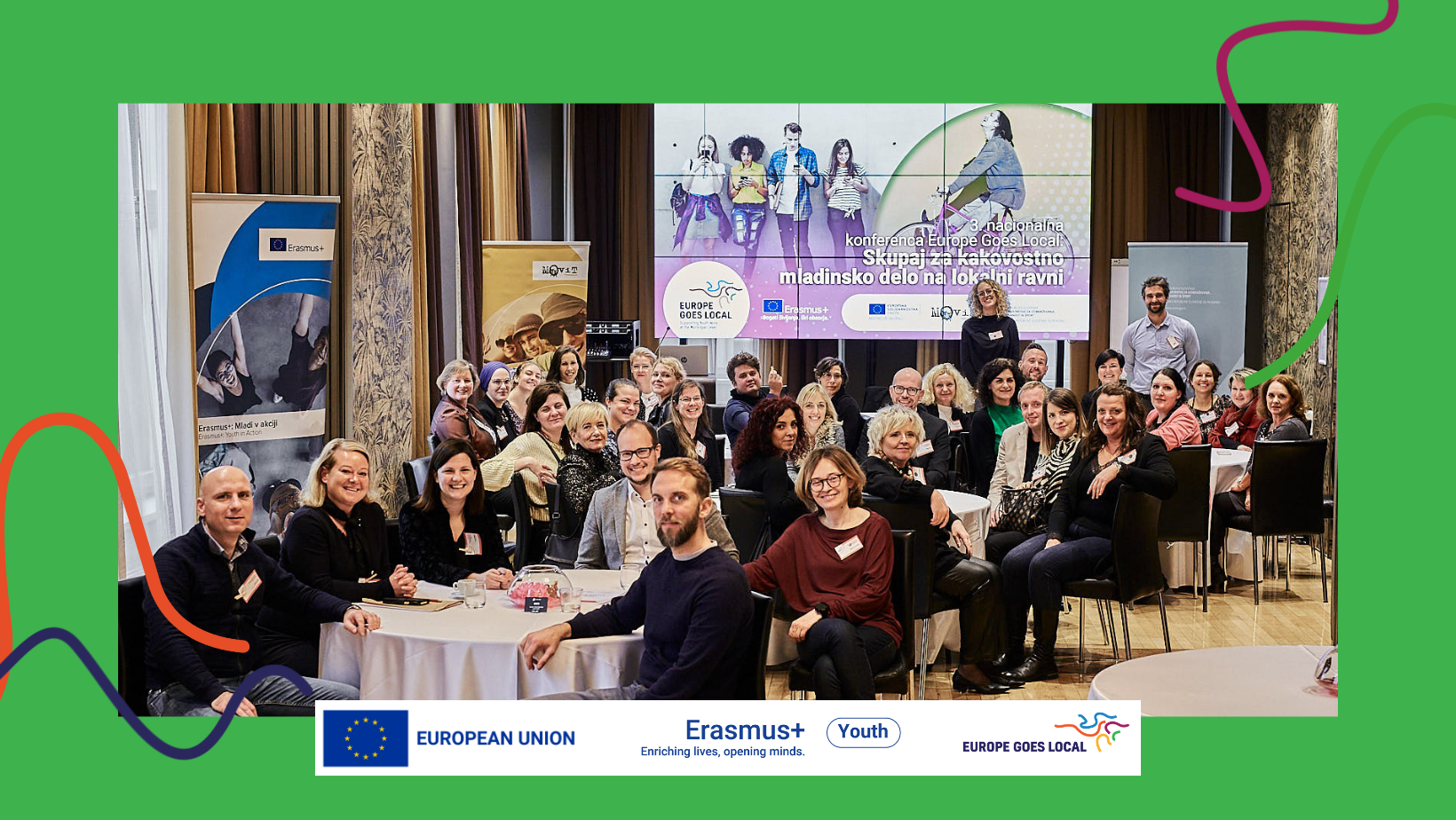
MOVIT is one of the founding members of the EGL network, and year after year we enjoyed checking in with the team to learn more about how is municipal youth work developing in their country. This time we had the pleasure of interviewing Elizabeta Lakosil, Program Officer at MOVIT, the National Agency for Erasumus+: Youth and European Solidarity Corps in Slovenia. We talked about the strategy to enhance the skills of municipal youth workers and build a strong local and national network that can also cooperate successfully on the European level.
EGL has been present in Slovenia for some time, can you share with us how the national level feeds into supporting the youth work on the municipal level? What is your strategy and its main aims/goals?
Slovenian National Agency has been involved in Europe Goes Local since 2016. We had an active national committee until last year and are now connecting it to a national working group for implementing the Bonn process – the European Youth Work Agenda. There are over 25 active municipalities in Slovenia. We cooperate with the National Youth Council, the network of youth centers Mreža MaMa, and the Office for Youth of the Republic of Slovenia.
We aim to form support activities that address the different needs of municipalities while developing and strengthening quality youth work. Another important aim is to increase recognition of youth work and its impact on local communities.
Our specific goals are:
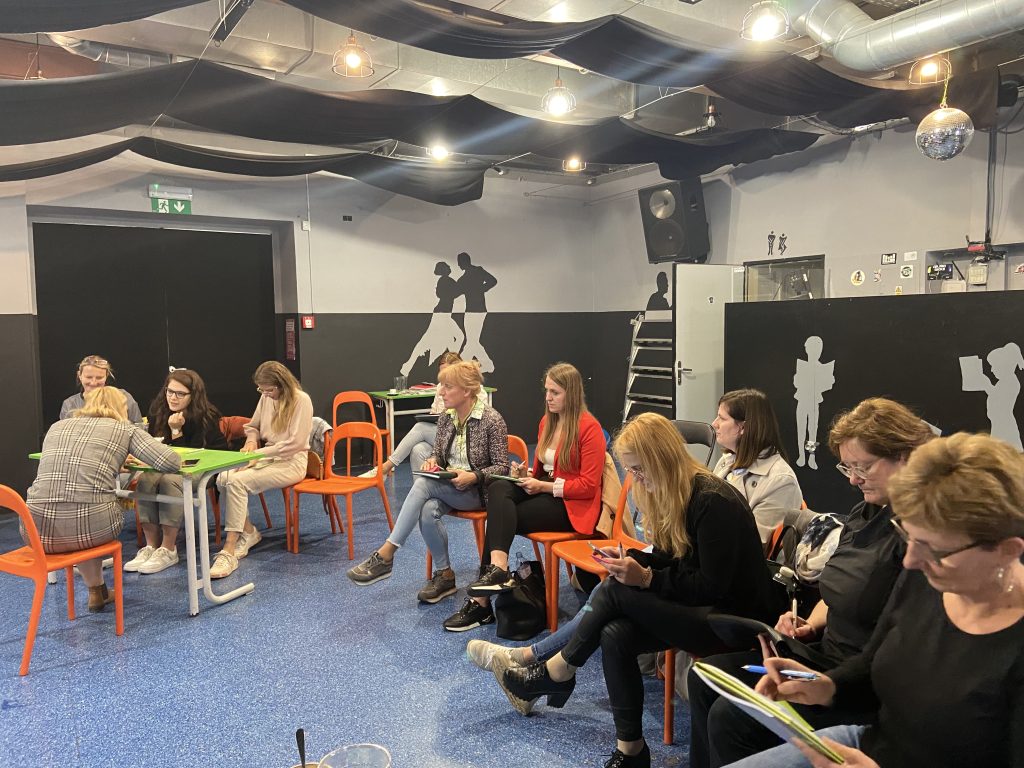
How would you describe the impact and the value added to the local youth work?
The impact is visible on several levels. We measure and track all key data leading us in the right direction when it comes to the quality development of youth work in Slovenia. Municipalities have developed in various aspects. They have:
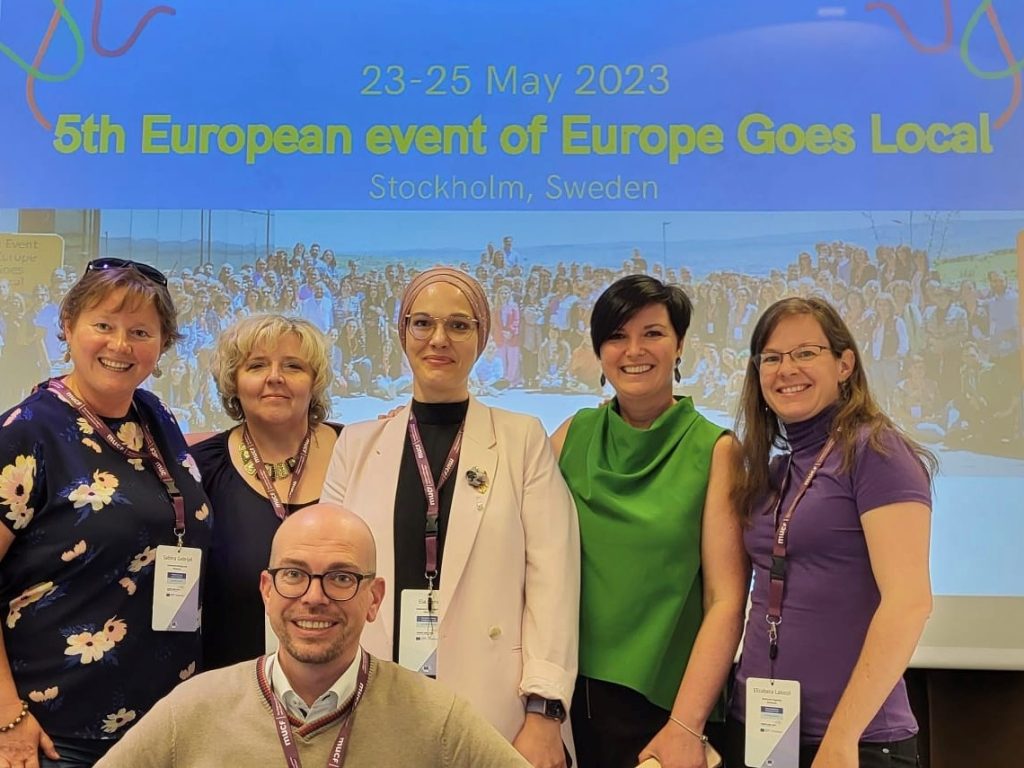
What are some good practices in Slovenia we can learn from you in working with municipal youth workers?
In 2022, we started with individual support to six smaller municipalities for one year. Each got a mentor, who supported them in the processes needed to bring the awareness of youth work and cooperation with and for young people to a higher level. The results were promising, so we will start a new cycle next year.
Then we supported numerous study visits for municipal workers and decision-makers to other municipalities. Each time there was a different focus – for example, participation of young people in democratic processes, participatory budgeting, infrastructure for youth, implementing policies connected to the field of youth, etc.
We have developed a training course for municipal workers, educating them about the quality of youth work and its impact on communities. We had three editions so far and added the topic of advocacy to the last one, as it was expressed as a need by the municipal workers themselves. It is implemented annually.
Since 2019, we have hosted a national EGL conference once per year, where municipal workers can share good practices, their experiences from international study visits, and other activities that they took part in, we present relevant topics for that year. All these events contribute significantly to their networking and lead in some cases to some form of further collaboration.
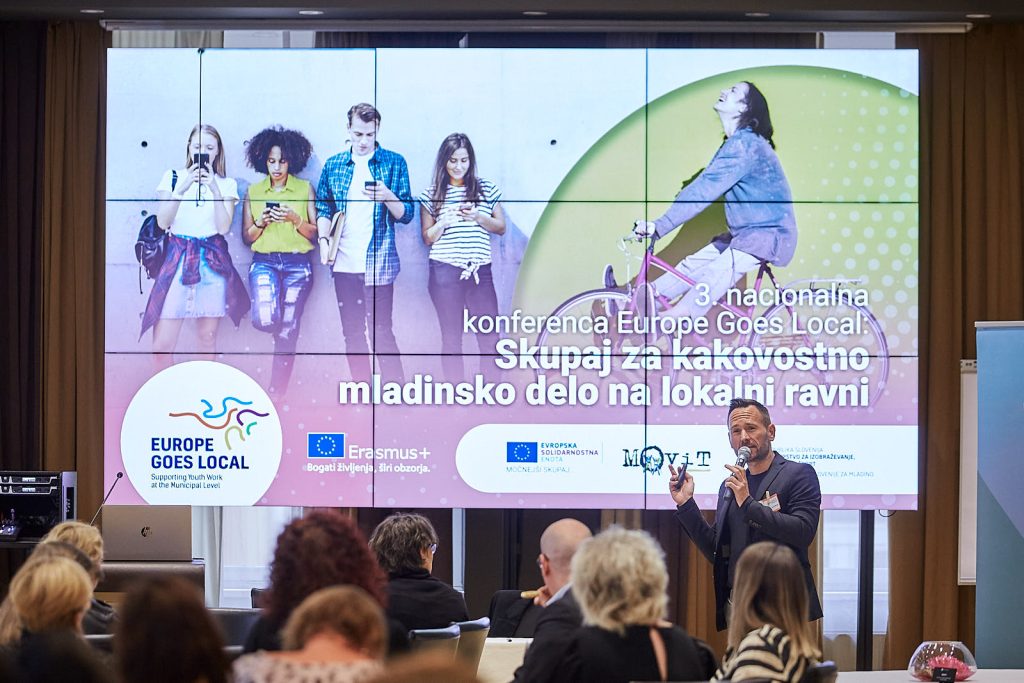
What are some of the key tools and resources you use for quality development of youth work in the municipalities?
Our work with municipal workers is based on the European Charter on Local Youth Work. We always use it and promote it throughout our events. We also find the Changemakers kit very helpful and relevant, which was the case for municipal workers as well. We often work closely with the National Youth Council and the National network of youth centers MaMa, which have connections to different municipalities from a different perspective. We also always present a good practice example, which serves as inspiration, as we always try to bring someone they can relate to. These good practices help because they make what they hear more realistic.
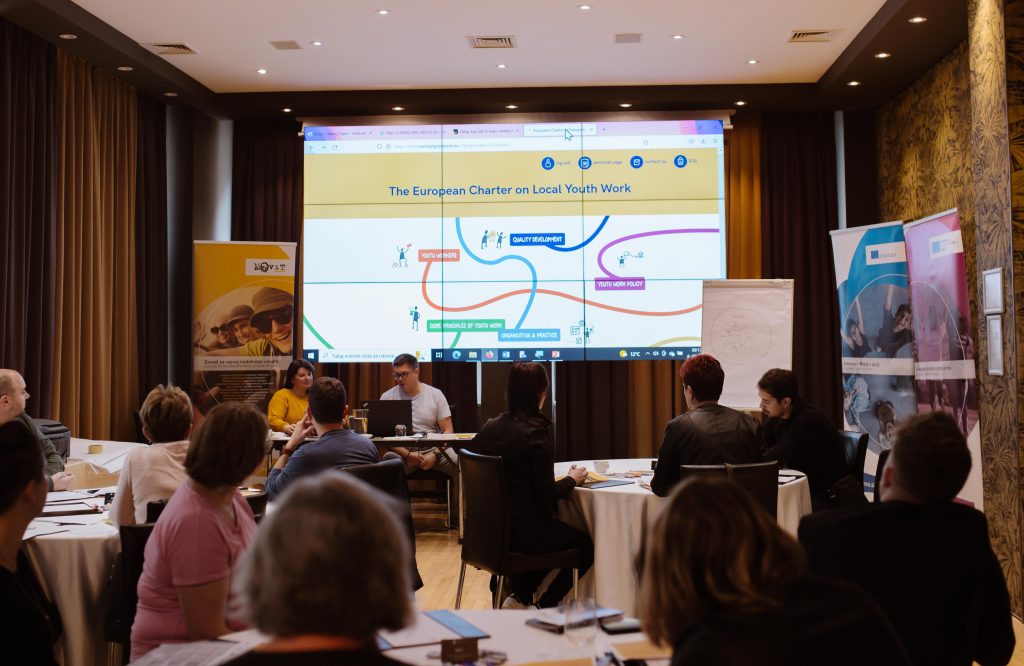
What activities have you had in Slovenia in youth work that involved municipal, or national cooperation?
Slovenia has 212 municipalities and based on its size, many are very small. Too often there is only one person responsible for the department for youth, and their position also has many other topics they need to work on.
The number one priority is to educate more people within their municipality on the importance and impact of youth work. Right after that, the priority is to work more hand-in-hand with young people, to establish a good and fruitful dialogue with them and mutual trust, to implement strategies for youth, and to work on infrastructure that young people need. Municipal workers also recognize the EGL national conference as a platform they would like to keep, as they find the sharing of experiences and networking valuable for their work.
Read more: